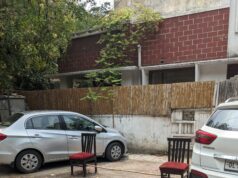By: Surbhi Tandon
What does it take to break a story, to expose scam, to unearth rot? Popular perception is that journalism is a profession with privileged-secure-jobs. Journalists are often seen as glamorous crusaders of public good. But like it or not, the world of journalism is far from the jazzy studios of New Delhi; and not all is well in the real world. We explore this truth after the assassination of senior journalist Jyotirmoy Dey in broad daylight in Mumbai.
“My name is Shahina and I am not a terrorist” is an article by a Tehelka journalist, written after she was charged of criminal intimidation under Section 506 of the Indian Penal Code for her investigative report in Kerala. Shahina wrote an article ‘Why is the man still in prison?’ published in Tehelka Magazine on 4 December 2010. She investigated how Abdul Nasar Madani, Chairman of People’s Democratic Party (PDP), was falsely implicated in the Bangalore blasts case of 2008. Her investigative inquiry revealed that some of the key witnesses were unaware of the fact that their testimony was on the chargesheet! In a phone conversation with us, Kunal Majumdar – Current Affairs Correspondent of Tehelka – said, “Just by the virtue of being a journalist, there is always a certain amount of risk involved, especially when reporting in small cities the danger and risk is always higher than compared to big cities”.
Butchering of Pakistani journalist Syed Shahzad Saleem shocked us all. The fact is that things ain’t much greener on this side of the “world’s most dangerous border“. India ranks 13 in the recently released Impunity Index of the media watchdog Committee to Protect Journalists , Pakistan is only slightly worse at rank 10.
The sad truth is that the press which champions the cause of “free speech” risks facing charges of sedition in “independent democratic” India when they honestly report facts and figures against the government. In Orissa, for instance, four journalists have been charged with sedition since July 2010. In the first four months of this year there have been six reported instances of intimidation of journalists and writers, free speech can’t be taken for granted in our country. Interestingly, India’s ranking in the Press Freedom Index 2010 was 122 among 178 countries. This ranking – developed by Reporters Without Borders – takes into account violations directly affecting journalists (such as murders, imprisonment, physical attacks and threats) and news media (censorship, confiscation of newspaper issues, searches and harassment) as well as the degree of impunity enjoyed by those responsible for these press freedom violations.
Jawaharlal Nehru once said “I would rather have a completely free Press with all the dangers involved in the wrong use of that freedom than a suppressed or regulated Press”. There is an urgent need to do a lot more than mere declarations to obtain “complete press freedom”, recognizing the real landscape that journalist tread would be a good place to begin.
Post Disclaimer
The opinions expressed in this essay are those of the authors. They do not purport to reflect the opinions or views of CCS.





